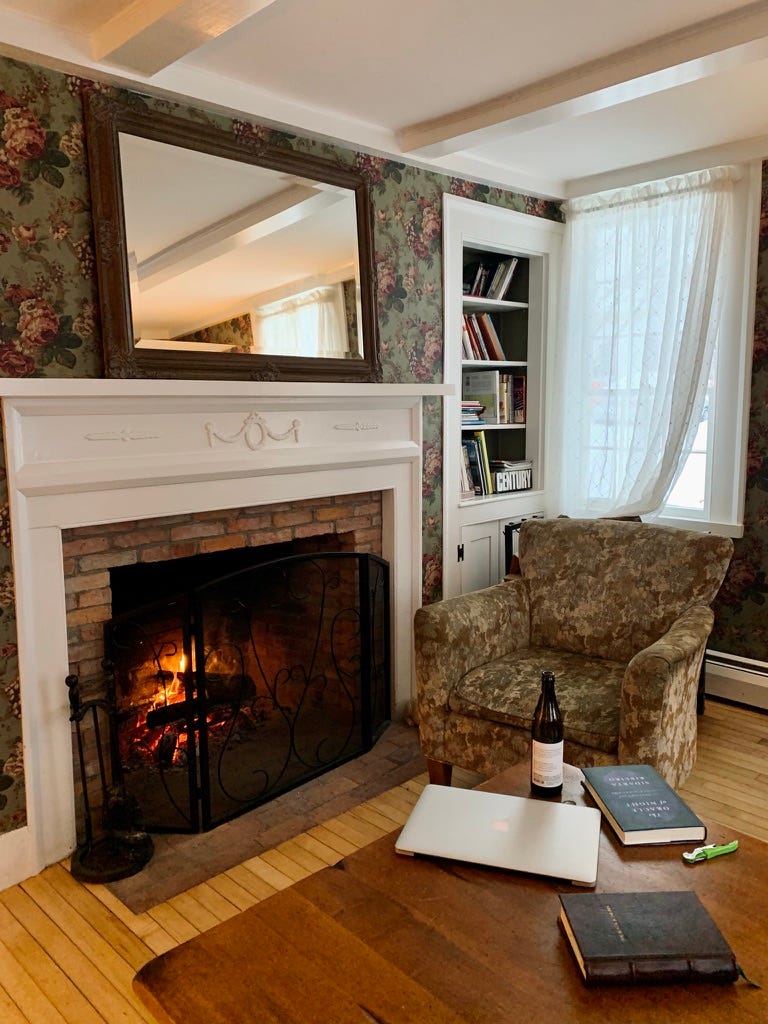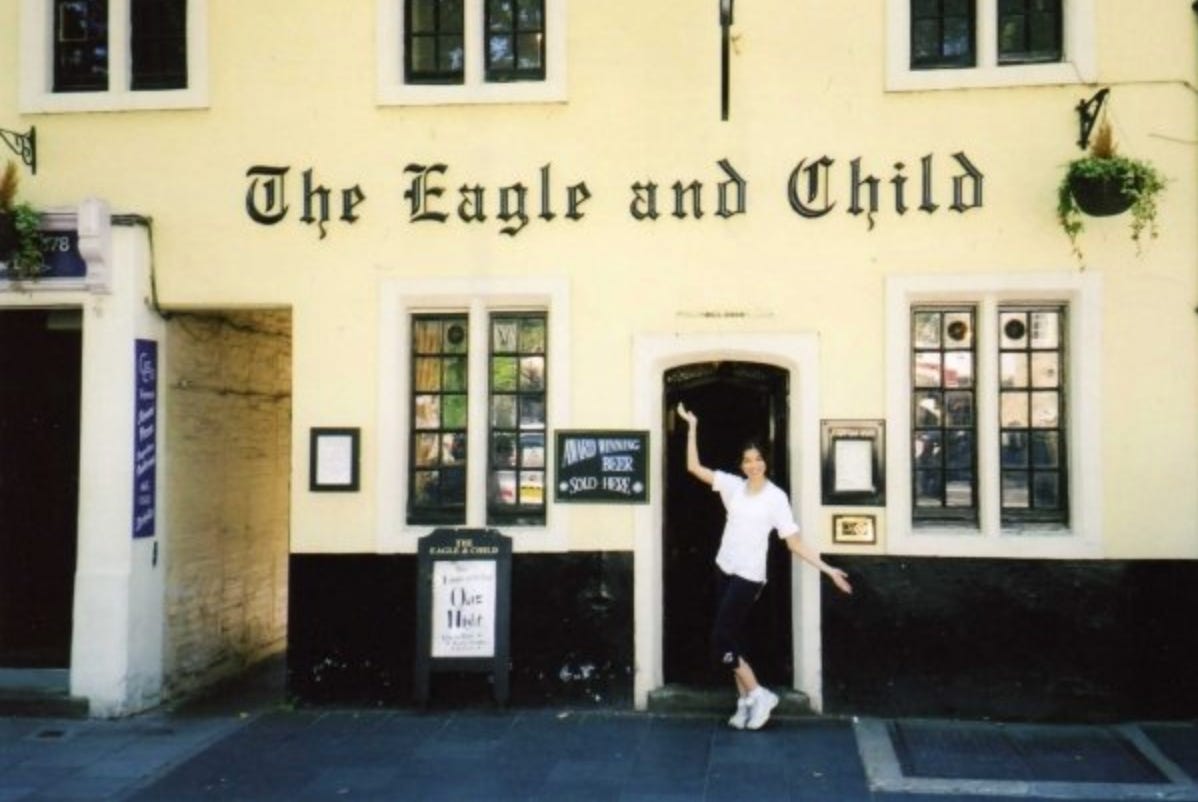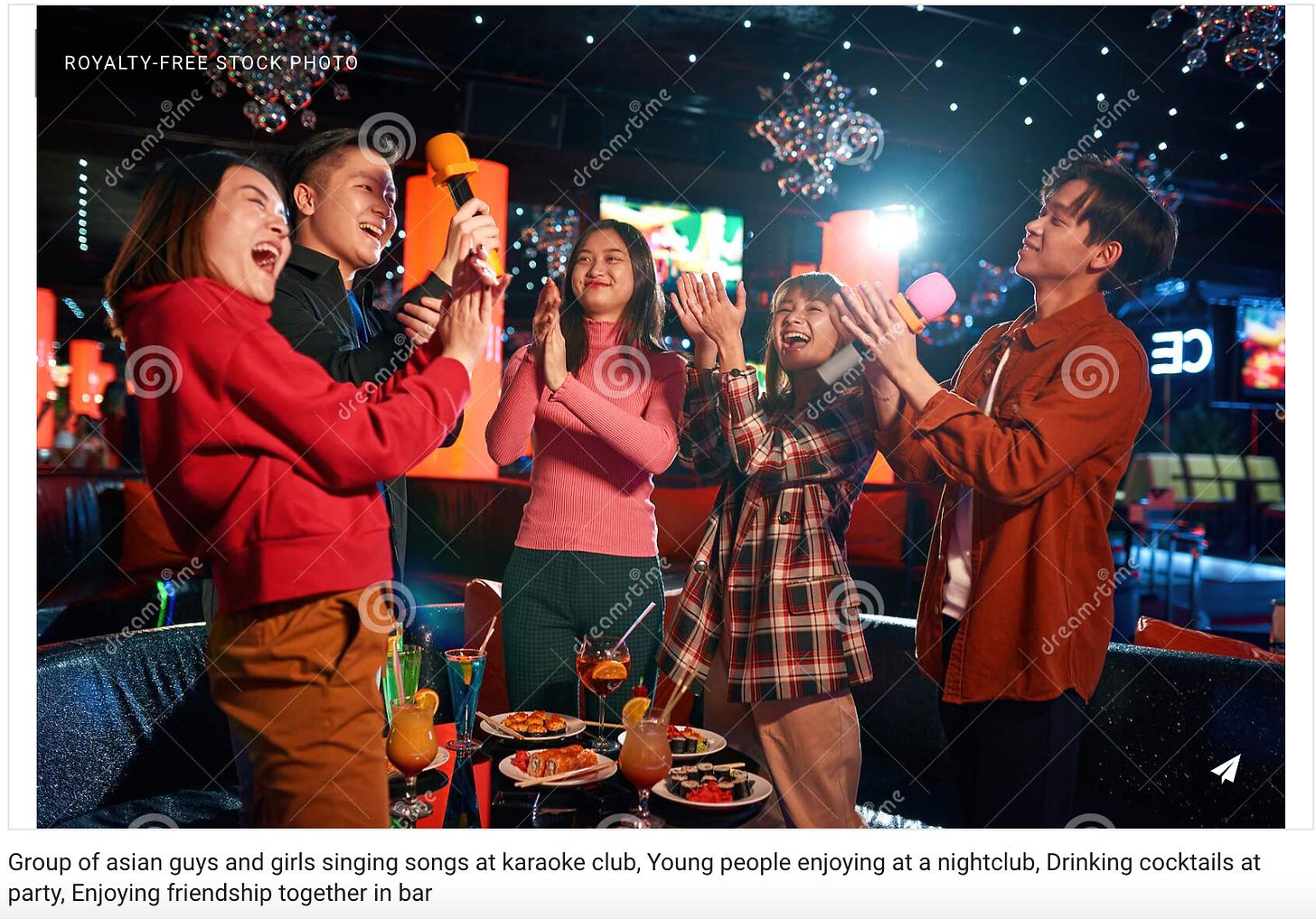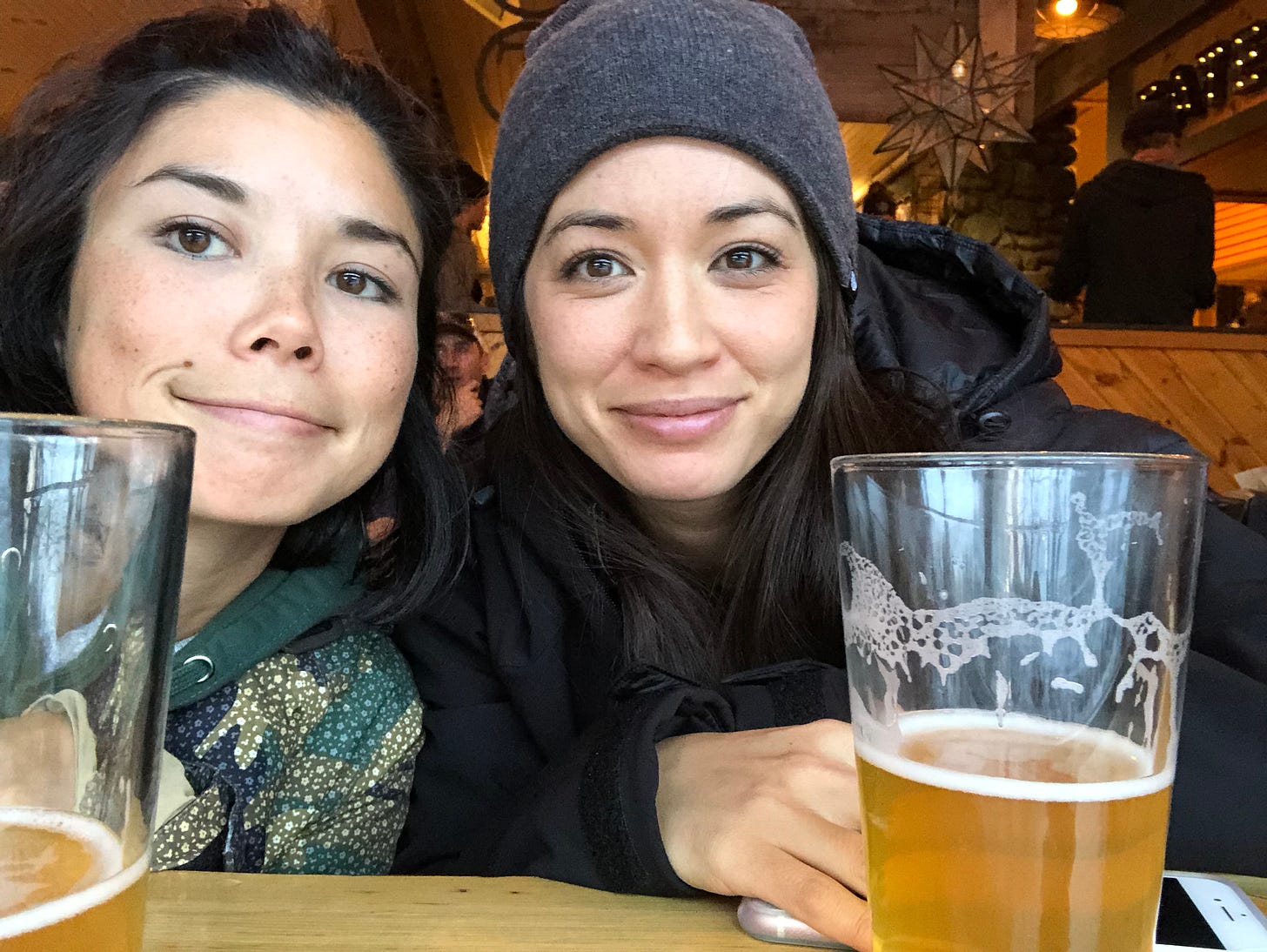My love for old pubs & taverns came first, but my growing exhaustion with not seeing Chinese women ‘belly up to the bar*’ on the screen, has propelled me to explore yet another gap between reality and Asian-American representation in popular culture.
*My first draft just had “belly up” but I did not want that to be confused with going bankrupt. I love this term though, some say it started in reference to age/height, as in: if your belly doesn’t reach the bar, you aren’t old enough to drink.
This past February, I spent a weekend in Ogunquit, ME to write. As a mother who runs her own business, I enjoy solitude wherever I can take it. Whether that’s catching a weekday matinee by myself or a weekend in a little B&B to write, these escapes feel necessary for my work/life/writing balance.
I can usually write for a few hours a day in solitude, but after awhile, I crave to be around people — even if I’m not speaking to any of them.
After a few hours of writing in the hearth-anchored Black Boar Inn, I felt the call to wander. Within minutes I was basking in dim glow of the Old Village Inn.
How many in your party?
It’ll just be me. Is there room at your bar?
The host nodded and stepped aside to let me pass. I found one stool left sandwiched between an elderly man, a couple from Boston, and a set of three contractors. I took off my bulky winter coat, slipped into the seat intentionally, as if not to disturb the air around me. I removed my mask, and offered a small, closed-mouth smile to the bartender. (For those that don’t know, this is the kind of smile that women wear in public, alone, to be friendly, but not too friendly. To invite pleasant service, not whole life stories, or uninvited hands on thighs.)
How many acres of wood have I tucked into in my life? How many coasters popped down under my chin, awaiting my order? I worked in the service industry for ten years. At 14 I started working as a hostess, kitchen staff and runner. Then, I worked my way up to server, finally settling into my preferred gig in hospitality, bartending.
Armed with a book and having a meal at the bar, (whether drinking or not), was part of the city life that became customary for me. In Toronto, my local bar (miss you, Horseshoe Tavern) was where I’d meet my friends and community, especially while I moonlit as a music photographer.
My love for old taverns and pubs has its beginnings in the UK where I studied for a summer in high school. The Eagle and Child in Oxford is known for being the go-to pub for “The Inklings,” aka C.S. Lewis and J.R.R. Tolkien.
But leaving Toronto for Maine, something shifted that I didn’t expect. Sitting there in the Old Village Inn of Ogunquit, I felt as alien as the green card in my pocket tells me I am.
Thin-limbed Asian women aren’t typically represented on the screen, gulping down pints or sipping whiskies. The first question I usually get asked when alcohol is brought up, is if I’m allergic to it, to which I always ponder in response, aren’t we all?
Asian women seem to only exist in the antithetical — We’re either represented as the fainting-couch variety: demure, coquettish, an opium den not too far off screen. The other box we’re slid into are the warrior-type rebel: Mulan, Zhang Ziyi in Crouching Tiger Hidden Dragon, or Lucy Liu in Charlie’s Angels. From the limited scope of pop culture’s lens, we’re badass and sexual, or silent and sexual. The binary descriptors completely erase the multi-faceted prism Asian Americans (notably women) shine from. Everyday, we’re here living a million different stories from endless miles of countries. How is it possible a demographic so massive, can be so pin-holed in stereotype?
Where are the Asian women who just hang with the guys on trivia nights?
I find myself walking into rooms in Maine aching to see myself reflected in any small sliver. But in rural towns the closest I get are the Chinese restaurants that dot the downtowns. Tucked into the bar at the Old Village Inn, sipping a cool Guinness, I try to keep my head buried in my book, telling myself the stares I’m feeling are presumed echoes from my past. What a thing, to want: to feel permitted to sit at a bar without drawing attention to being a Chinese woman alone. What is she doing here? An imagined question I’ve been trying to let go of for so long.
The barkeep was friendly, in the way that bartenders are: offering a steady flow of anecdotes and chatter to keep patrons at ease, thirsty. The conversation circled, each of us waiting for a chance to tell something about ourselves that was related to the anecdote before them.
Before I finished my first pint, the bartender asked me a handful of “where are you from?” questions, followed by a short monologue on how Maine was sadly not diverse, and he wishes it were different. He followed this by discussing his past travels to Egypt and Asia for twenty minutes.
A quick stock photo search on dreamstime.com gives endless options of… Asian patrons singing karaoke.
I ate my dinner, read a chapter of my book, and left feeling like I had just sat at my first bar in college. Even though I had an ID that proved I was legal to be there, I somehow felt like I was going to be found out, removed, mocked, or hit on. When I used the restroom midway through my night out, I looked at myself in the mirror and pulled at the hem of my skirt. Even though I was wearing thick, black tights, I wondered, Shit. Does it look like I’m here, trying to be hit on? An insecurity I’ve been trying to let go of for so long.
This permission that I desire is a conundrum. To achieve the invisibility of belonging, a society must look at you like you’re not different from the crowd. In many parts of Maine, I can’t avoid this unless I wear a bag over my head. But, the purpose of my writing is to draw attention to the diversity in Maine. It is here after all. To refer to Maine as only white, does a disservice to all the wonderful communities of color making a path forward here. So, the other part of me really wants to have the conversation with local barkeeps about being an Asian in Maine. How else are we going to bridge the gap between our often divided culture?
This is the tightrope that communities from the underrepresented walk daily. We want to flaunt our ancestral colors, blast the music from our homelands, and dance in the song that makes our blood thick, but also be nodded at in silent recognition that we belong here*.
*For me, recent “here’s” have included, but aren’t limited to: drinking a pint of Guinness at any bar, behind the wheel of a pickup truck, writing workshops, in the hunting section of L.L. Bean.
I recognize that nothing explicit happened to me in Ogunquit. No one was rude to me about my race, and no one hit on me. But there’s a nervous flinch that’s been coded into me and I’m finding it’s coming to the surface more in Maine.
I took this for granted in Toronto. At The Horseshoe Tavern, the doorman knew me by name, and let me in the back entrance when it was full. No one ever made comments about allergies to alcohol, or questioned why I was alone. To be fair, I was at the Tavern almost weekly to shoot bands, meet friends, and pop my head into music videos (minute 5:51 lol), but — I could sit, belly-up at most bars along Queen Street and see myself reflected in half the patrons there.
Sure, Maine’s population of Asian women is a fraction of Toronto’s, but across America we all digest the same content, same blockbuster films, same viral memes. Let’s make sure we cast Chinese actors as leads, yes, but for representation to get closer to reality, we also need Asian casting directors and screenwriters of color. I know it seems like a small thing, to want see myself on the screen sipping a pint of beer without any tropes attached to it, but it might help me finally shed that nagging voice asking, Do I belong here?
A question I’ve been trying to let go of for so long.









love this. love you.